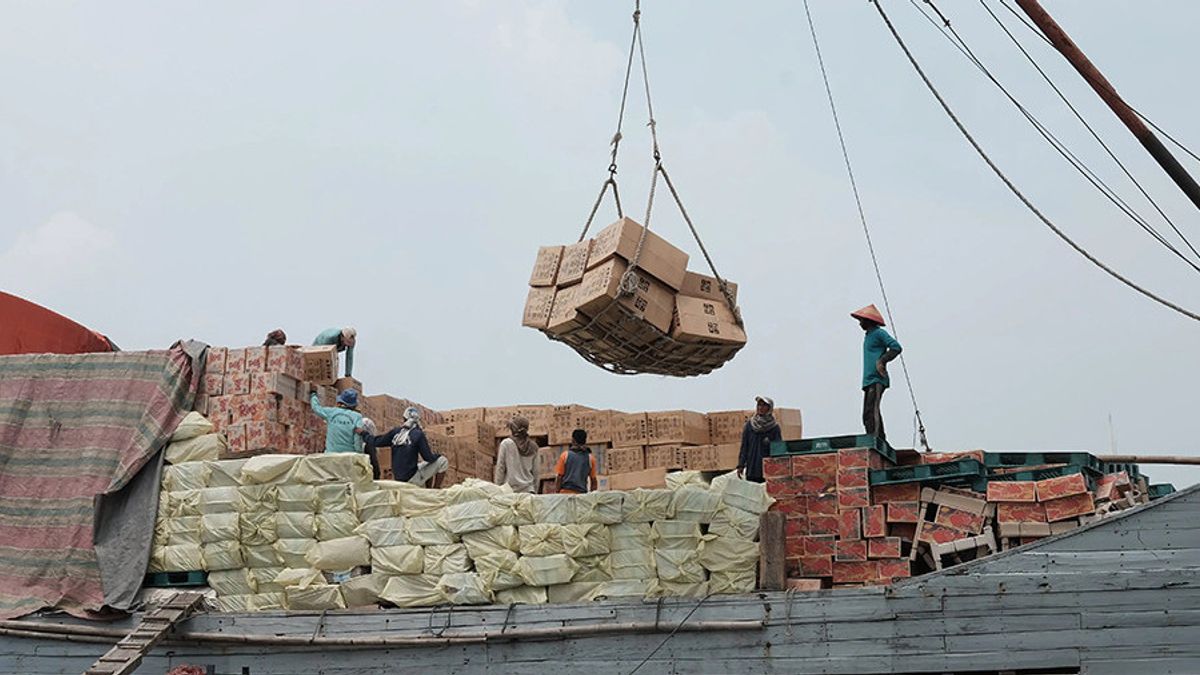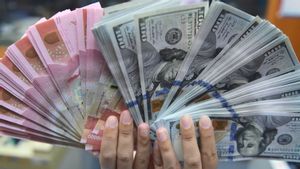JAKARTA - The government through the Ministry of Finance (Kemenkeu) positively welcomed the record of the trade balance surplus in September 2022 which reached US$24.8 billion.
Head of the Fiscal Policy Agency (BKF) of the Ministry of Finance Febrio Kacaribu said the book grew 20.2 percent compared to the same period the previous year (year on year/yoy).
He explained that Indonesia's increase in exports was driven by oil and gas exports which were still growing at 41.8 percent and 19.26 percent, respectively.
"Although monthly (month to month/mtm) has slowed down a bit, among others, due to the decline in prices and volume of leading commodities, total exports have continued to increase cumulatively," he said in a press statement on Tuesday, October 18.
According to Febrio, this is reflected in the January-September 2022 export which reached 219.35 billion US dollars, an increase of 55 billion US dollars compared to the same period the previous year of 164.32 billion US dollars.
"The cumulative increase in exports shows that global demand is still strong along with the better pandemic control. Strengthening export demand mainly comes from several major trading partner countries in Indonesia, such as India, Japan, and South Korea," he said.
Meanwhile, in terms of imports, Indonesia still recorded a positive performance of 19.81 billion US dollars with a growth of 22 percent, although relatively slow compared to the previous month.
"The growth in imports, among others, is driven by the performance of the manufacturing sector as reflected in the Indonesian Manufacturing PMI in September 2022 which continues its expansion," he said.
Furthermore, Sri Mulyani's subordinate revealed that the increase in imports was driven by oil and gas imports which increased by 83.5 percent and non-oil and gas imports grew by 14 percent. Meanwhile, from January to September 2022, Indonesia's total imports reached 179.49 billion US dollars.
Then, in terms of use, imports of raw materials and capital goods grew high, respectively 23.2 percent and 41.1 percent.
"The growth of the two items reflects that economic activity in terms of production is still running well," he added.
Regarding imports of consumer goods, although it decreased on an annual basis by 11.1 percent, among others due to price increases, cumulatively from January to September, imports of consumer goods still experienced growth of 3.5 percent.
"In the future, the Government and related authorities will anticipate various global risks that will affect the trade balance and the economy in general, including slowing international trade activities in developed countries," concluded the Head of BKF of the Ministry of Finance Febrio Kacaribu.
The English, Chinese, Japanese, Arabic, and French versions are automatically generated by the AI. So there may still be inaccuracies in translating, please always see Indonesian as our main language. (system supported by DigitalSiber.id)








